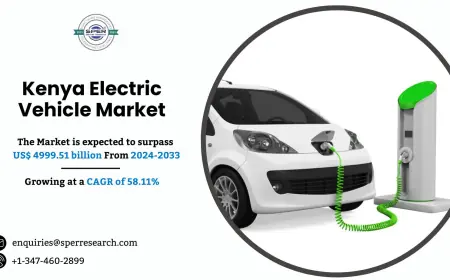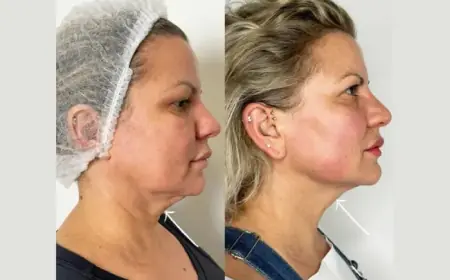Top Questions Patients Ask Before Gynecomastia Surgery in Islamabad
Gynecomastia—commonly referred to as “male breast enlargement”—is a condition that affects a significant number of men, causing physical discomfort and emotional distress

Gynecomastia—commonly referred to as “male breast enlargement”—is a condition that affects a significant number of men, causing physical discomfort and emotional distress. Whether triggered by hormonal imbalances, medications, genetics, or lifestyle factors, the presence of enlarged male breast tissue can be deeply frustrating. Many men turn to Gynecomastia Surgery in Islamabad as a lasting solution. But before going under the knife, it's natural to have questions.
1. What Exactly Is Gynecomastia?
Gynecomastia is the enlargement of male breast tissue caused by hormonal imbalances—primarily an increase in estrogen or a decrease in testosterone. It can affect one or both breasts and may be accompanied by tenderness or pain.
This condition is different from pseudogynecomastia, which is caused by excess fat rather than glandular tissue. Distinguishing between the two is crucial, as it determines the right course of treatment.
2. Who Is an Ideal Candidate for Surgery?
You may be a good candidate for gynecomastia surgery if:
-
You are in good general health.
-
Your breast development has stabilized.
-
You have realistic expectations.
-
Your condition has not responded to diet, exercise, or medical treatment.
Candidates should also be non-smokers or willing to stop smoking, as smoking can interfere with healing.
3. Is Surgery the Only Option?
Not always. Mild cases of gynecomastia may improve with weight loss, hormonal treatment, or stopping certain medications. However, for moderate to severe cases, surgery is the most reliable and permanent option.
4. What Are the Surgical Options Available?
There are primarily two surgical techniques used to treat gynecomastia:
-
Liposuction: Best for pseudogynecomastia or when excess fat is the main issue.
-
Excision: Used to remove dense glandular tissue or excess skin, often through small incisions around the areola.
Sometimes, both techniques are combined to achieve optimal contouring.
5. How Long Does the Procedure Take?
The surgery usually lasts between 1 to 2 hours and is typically performed under general anesthesia. It is a day-care procedure, which means patients are usually discharged the same day, unless advised otherwise by the surgeon.
6. Will I Have Scars?
Minimal scarring is expected, but skilled surgeons make small incisions in inconspicuous areas, such as around the edge of the areola. Over time, these scars fade significantly, especially with proper post-operative care and scar treatments.
7. What Is the Recovery Like?
Recovery time varies, but most patients can:
-
Return to desk work within 3 to 5 days
-
Resume light activity after 1 week
-
Engage in more strenuous activity after 4 to 6 weeks
Wearing a compression garment for several weeks is essential to reduce swelling and support the new chest contour.
8. Is the Surgery Painful?
You may experience some discomfort, swelling, and tightness in the chest for a few days following surgery. Pain is usually mild to moderate and can be managed with prescribed painkillers. Most patients report that the discomfort is manageable and well worth the results.
9. What Are the Risks or Side Effects?
Like all surgical procedures, gynecomastia surgery comes with some risks, including:
-
Infection
-
Bleeding
-
Scarring
-
Asymmetry
-
Changes in nipple sensation
However, these risks are significantly minimized when the procedure is performed by an experienced and board-certified plastic surgeon.
10. How Long Before I See Results?
Initial results are noticeable as soon as swelling subsides—usually within 3 to 4 weeks. However, the final shape and contour can take up to 3 to 6 months to fully develop as internal healing continues.
11. Will the Condition Come Back?
In most cases, gynecomastia surgery offers permanent results. However, recurrence can occur if the underlying cause is not addressed, such as:
-
Hormonal imbalances
-
Use of anabolic steroids
-
Weight gain
-
Certain medications
Following a healthy lifestyle and avoiding known triggers can help maintain results.
12. What About Nipple Sensation?
Temporary changes in nipple sensitivity—either numbness or increased sensitivity—are common. These changes typically resolve within a few weeks to months. Permanent changes are rare but possible.
13. How Much Does Gynecomastia Surgery Cost in Islamabad?
Costs vary depending on the severity of the condition, surgeon’s experience, and clinic reputation. It typically includes:
-
Surgeon’s fees
-
Anesthesia charges
-
Operating room costs
-
Compression garment
-
Follow-up visits
Many clinics offer consultations to provide an exact quote based on individual cases.
14. Can I Combine This With Other Procedures?
Yes. Many patients opt to combine gynecomastia surgery with procedures like liposuction for other body areas or even abdominal sculpting. Combining treatments can save recovery time and cost in some cases.
15. How Do I Choose the Right Surgeon?
Look for a board-certified plastic surgeon with:
-
Extensive experience in gynecomastia cases
-
Positive patient reviews
-
Before-and-after galleries
-
Transparent consultation practices
Never hesitate to ask questions during your consultation. A confident and honest surgeon will always welcome your queries.
16. Do I Need Pre-Op Tests?
Yes. Common pre-surgical evaluations include:
-
Blood tests
-
Hormonal panel
-
Chest imaging (in some cases)
-
Physical examination
These tests help rule out underlying conditions and ensure you're fit for surgery.
17. Can Teenagers Have Gynecomastia Surgery?
Teenagers can undergo surgery, but it is usually recommended only when:
-
The condition has persisted for over two years
-
It is causing psychological distress
-
Hormonal levels have stabilized
Each case should be evaluated individually, and parental consent is required for minors.
18. Will Insurance Cover It?
In most cases, gynecomastia surgery is considered cosmetic and not covered by insurance. However, if the condition is causing significant physical discomfort or psychological impact, partial coverage may be possible. It’s best to check with your insurance provider.
Final Thoughts
Choosing to undergo gynecomastia surgery is a personal decision that can significantly impact your self-image and confidence. Being well-informed helps reduce anxiety and sets realistic expectations.
For those considering Gynecomastia Surgery in Islamabad, it’s important to consult a qualified surgeon who can address your specific needs. If you’re ready to take the next step toward a flatter, more masculine chest, consider scheduling your consultation with the professionals at Dynamic Clinic—a trusted name in cosmetic and reconstructive procedures in Islamabad.
What's Your Reaction?
 Like
0
Like
0
 Dislike
0
Dislike
0
 Love
0
Love
0
 Funny
0
Funny
0
 Angry
0
Angry
0
 Sad
0
Sad
0
 Wow
0
Wow
0






















































